-
“Multilateralism is Back!” Climate Change, Equity, and 21st Century Diplomacy
›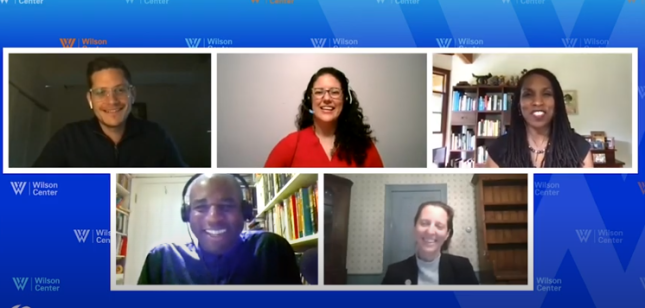
“Climate change will upend the 21st century world order. From financial systems, migration patterns, and great power competition, to the potential unintended consequences of climate responses, and issues of inequity and the future of democracy, climate change will penetrate our systems, our relationships, and our lives in ways that we have yet to fully understand,” said Lauren Risi, Director of the Wilson Center’s Environmental Change and Security Program, at a recent event co-hosted by the Wilson Center and adelphi. The panel discussion focused on two topics addressed in the recently launched 21st Century Diplomacy project—how efforts to address climate change will engage new modes of multilateralism and how to incorporate the increasingly urgent calls for a more equitable and just world.
-
Integrate Gender When Designing Climate Policy
›
The team of people tasked with coordinating the global climate change negotiations for the 26th UN Climate Change Conference (COP26) in 2021, we recently learned, consists entirely of men. While not surprising to many feminists in this space, this blatant disregard of gender diversity and women’s perspectives in climate policy is all too common. And it reflects broader ignorance of how gender and climate change intersect.
-
Climate Superpowers Could Alter Foreign Policy Landscape
›
“Climate change has the potential to be a very important confidence-building measure between the United States and China,” said Sharon Burke, Senior Advisor of the International Security Program and Resource Security Program at New America. “Because no matter what else is happening in our relationship, we can succeed together on climate change.” She spoke at the launch for a project co-led by the Wilson Center’s Environmental Change & Security Program and adelphi, “21st Century Diplomacy: Foreign Policy is Climate Policy.” Hosted as part of the Berlin Climate and Security Conference, the discussion focused on the “climate superpowers” section of the project.
-
The Environmental Collateral Damage of the South China Sea Conflict
›
Tensions in the South China Sea increased last April when a Chinese coast guard ship sank a Vietnamese fishing boat near the Paracel Islands—a fiercely disputed territory in the South China Sea. Disputes over island territories in the region have endured for decades, with China, Vietnam, the Philippines, Taiwan, Indonesia, Malaysia, and Brunei all making overlapping territorial claims. The region is rich in natural resources and biodiversity, holding vast fish stocks and an estimated 11 billion barrels of oil and 190 cubic feet of natural gas.
-
Refugees and COVID-19: A Closer Look at the Syrian and Rohingya Crises
›
“We all know that while no one is immune from the Covid-19 virus—and people of all types have caught the virus and died from it—it is the world’s most vulnerable communities that have suffered disproportionately from the pandemic,” said Michael Kugelman, Deputy Director and Senior Associate for the Wilson Center’s Asia Program. He spoke at a recent Wilson Center event on the impact of the COVID-19 pandemic on refugee communities. As of 2019, 1 percent of humanity was displaced. That’s more than 79.5 million people. The COVID-19 pandemic has exacerbated the vulnerabilities of these people. “The health pandemic is fostering a new pandemic of poverty,” said Matthew Reynolds, Regional Representative for the U.S. and the Caribbean at the United Nations High Commissioner for Refugees (UNHCR).
-
Preventing the Next Pandemic: Zoonotic Diseases and Future Outbreaks
› To recover from the devastating impacts of COVID-19, we will need to understand the risks and environmental factors that caused the novel coronavirus and other zoonotic diseases to emerge in the first place, according to a new report by the United Nations Environment Programme and the International Livestock Research Institute. The report, Preventing the Next Pandemic – Zoonotic Diseases and How to Break the Chain of Transmission, examines the root causes of the COVID-19 pandemic and other zoonotic diseases. It also explores the complex linkages between biological and non-living factors that impact our global ecosystem and spread diseases.
To recover from the devastating impacts of COVID-19, we will need to understand the risks and environmental factors that caused the novel coronavirus and other zoonotic diseases to emerge in the first place, according to a new report by the United Nations Environment Programme and the International Livestock Research Institute. The report, Preventing the Next Pandemic – Zoonotic Diseases and How to Break the Chain of Transmission, examines the root causes of the COVID-19 pandemic and other zoonotic diseases. It also explores the complex linkages between biological and non-living factors that impact our global ecosystem and spread diseases. -
COVID-19 Reignites Interest in Scenario Planning for Development … But Will It Last?
›
Not since COVID-19 burst onto the scene a few months ago have so many individuals and institutions, outside the business, military, and intelligence communities, woken up to the need for a smart way to characterize and communicate uncertainty. The overwhelming choice for many is scenario planning. Today, scenario planning applies to a wide spectrum of issues, not just international development. It has been used to anticipate changes in higher education, rethink workforce composition, and explore options for individual financial planning.
-
Reports Highlight the Need for Further Consideration of Gender, Climate, and Security Linkages
› In a recent Stockholm International Peace Research Institute (SIPRI) paper, Elizabeth Seymour Smith, a Research Assistant with SIPRI’s Climate Change and Risk Programme, explores the intersection of climate change, gender, and security in Women, Peace and Security (WPS) national action plans (NAPs) of 80 countries. Using qualitative content analysis, the article finds that states frame and respond to climate change and gender-based security in differing ways.
In a recent Stockholm International Peace Research Institute (SIPRI) paper, Elizabeth Seymour Smith, a Research Assistant with SIPRI’s Climate Change and Risk Programme, explores the intersection of climate change, gender, and security in Women, Peace and Security (WPS) national action plans (NAPs) of 80 countries. Using qualitative content analysis, the article finds that states frame and respond to climate change and gender-based security in differing ways.
Showing posts from category UN.


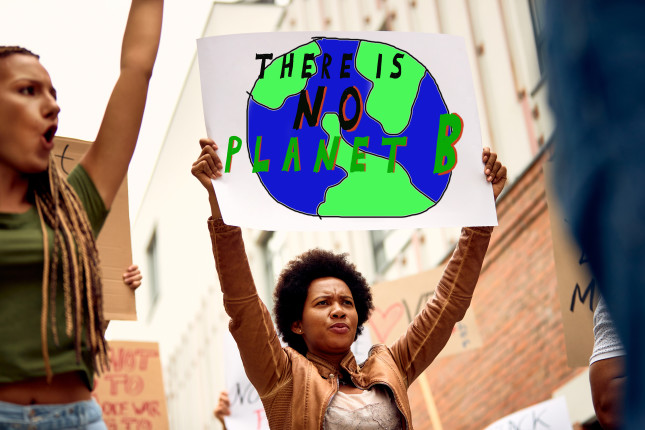
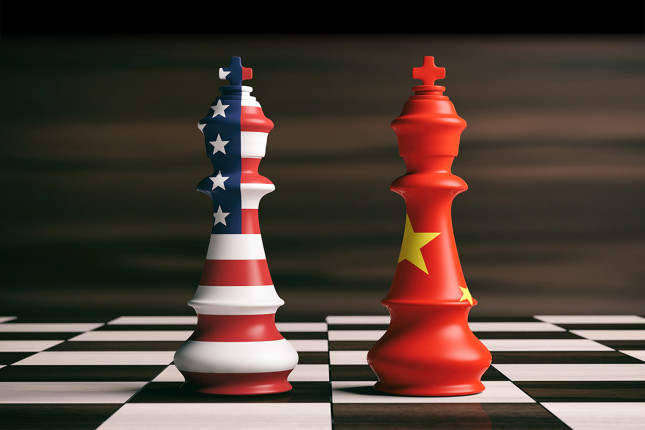
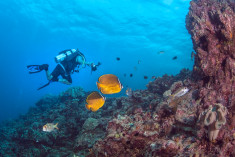
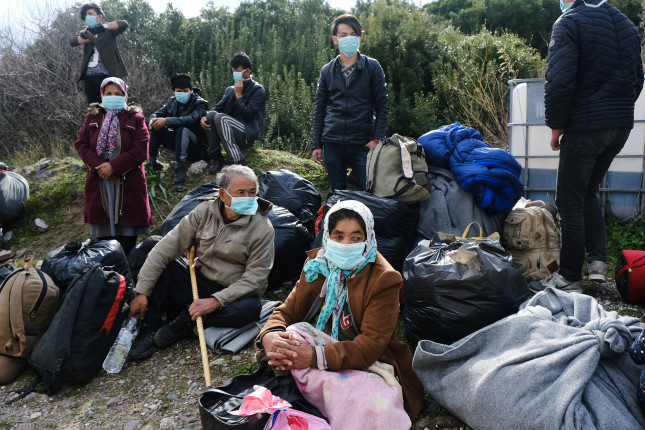
 To recover from the devastating impacts of COVID-19, we will need to understand the risks and environmental factors that caused the novel coronavirus and other zoonotic diseases to emerge in the first place, according to a new report by the United Nations Environment Programme and the International Livestock Research Institute. The report,
To recover from the devastating impacts of COVID-19, we will need to understand the risks and environmental factors that caused the novel coronavirus and other zoonotic diseases to emerge in the first place, according to a new report by the United Nations Environment Programme and the International Livestock Research Institute. The report, 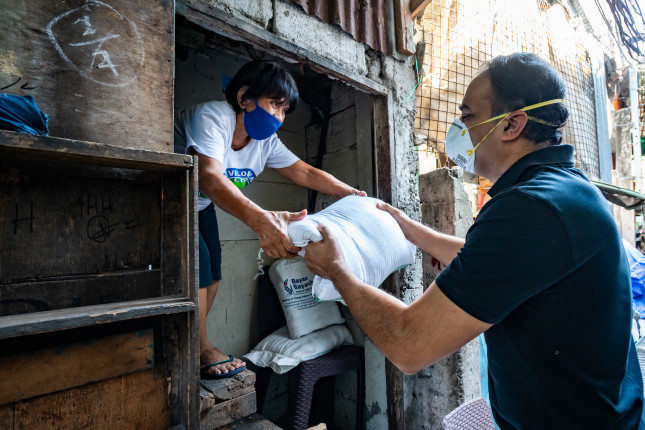
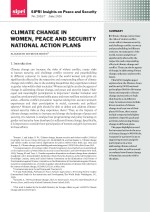 In a
In a 

